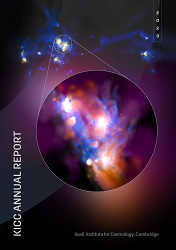
Submitted by S. Brereton on Mon, 15/03/2021 - 14:45
Dr de Lera Acedo from Cavendish Astrophysics and the Kavli Institute of Cosmology in Cambridge has been awarded a prestigious STFC Ernest Rutherford Fellowship (STFC ERF).
Dr de Lera Acedo’s research focuses on the study of the early epochs of our Universe via observations of the hyperfine 21-cm line from primordial Hydrogen. Dr de Lera Acedo’s leads the REACH international collaboration and experiment and the Cm-wave experimental radio cosmology group at Cavendish Astrophysics. With this fellowship, he will be able to focus for the next 5 years on observations of radio signals originally emitted at the time when the very first stars were formed, from primordial Hydrogen, subsequently shaping the Universe as we can see it today from Earth. With these radio observations, Dr de Lera Acedo’s team will aim at unveiling the mysteries of these unexplored early cosmic epochs. 21-cm cosmology, as this field of research is known, is a particularly challenging endeavour, due to the extremely faint radio signals astronomers aim to measure and study, buried under noise signals (eg. radiation from our own Galaxy) up to 100,000 times brighter. Furthermore, both signals (cosmological and foreground noise) are contaminated by the radio telescope itself. Dr de Lera Acedo’s multidisciplinary skill set in engineering and radio astronomy, with a background in precision radio instrumentation development for the HERA and SKA telescopes, will be fundamental in this quest. The project is entitled “Probing the Cosmic Dawn and the Epoch of Re-ionization with REACH”.
The STFC ERF is awarded yearly to 10 promising researchers “with clear leadership potential to establish a strong, independent research programme” from all around the World to work in UK universities. The STFC ERF covers the fields of astronomy, solar and planetary science, particle physics, particle astrophysics, cosmology, nuclear physics and accelerator science. The fellowship will start in late 2021 / early 2022 and will last for a period of 5 years.


